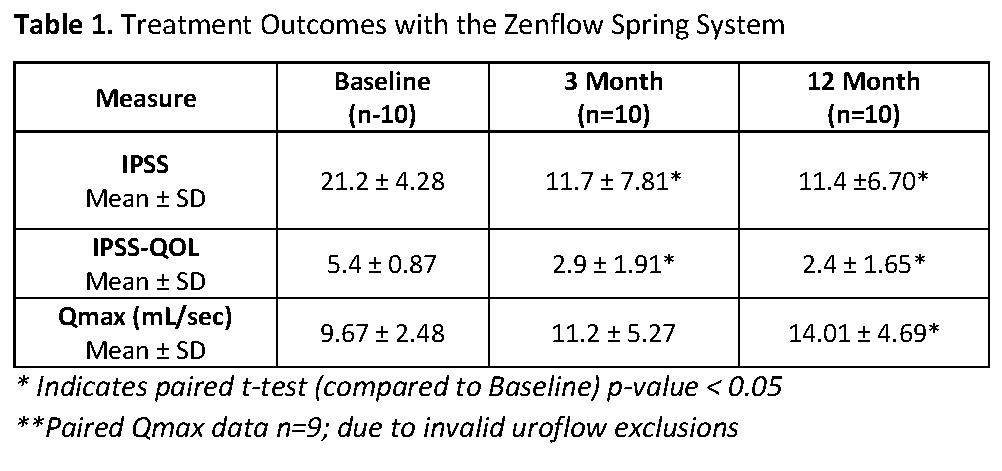The ZEST-CAN study is a prospective single-arm study evaluating the Zenflow Spring System for BPH. The Zenflow Spring System is a novel minimally invasive surgical therapy (MIST) that delivers an appropriately sized nitinol stent-like device into the prostatic urethra displacing the lateral lobes for improved urinary flow.
Ten (10) subjects received the device at 3 centers in Canada. Symptom improvement was measured utilizing the International Prostate Symptom Score (IPSS) and IPSS-QOL, and functional improvement was measured by peak urinary flow rate (Qmax). Erectile and ejaculatory function were evaluated utilizing validated questionnaires. The clinical events committee independently adjudicated any adverse event.
Subjects treated with the Zenflow Spring showed a significant reduction in IPSS from baseline to 12 months (21.2 vs 11.4, p<0.01), representing a 47% reduction in IPSS. IPSS QOL significantly improved from baseline to 12 months (5.4 vs 2.4, p<0.010, representing a 56% improvement. Qmax improved from 9.7 mL/sec at baseline to 14.0 mL/sec after treatment (p<0.05) representing a 45% improvement. There were no changes in sexual or ejaculatory function as assessed by the validated questionnaires. The responder rate at 12 months calculated as those with 30% improvement in IPSS was 70%. (7/10 subjects). Adverse events post procedure were typically mild and transient and common to events reported in similar procedures.

The Zenflow Spring System resulted in immediate and significant symptomatic improvements from 3 through 12 months. Subjects experienced improvements in symptoms, quality of life, maximum flow rate without any sexual dysfunction through 12 months of follow up. These results are currently being validated through a large, multiple centers, prospective randomized study in the United States and Canada.